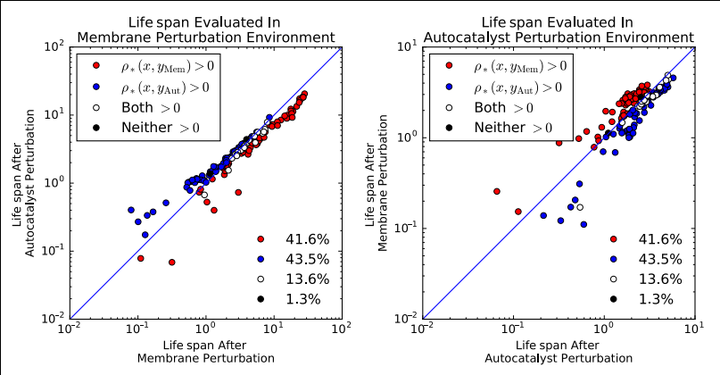
Abstract
One important sense of the term ‘adaptation’ is the process by which an agent changes appropriately in response to new information provided by environmental stimuli. We propose a novel quantitative measure of this phenomenon, which extends a little-known definition of adaptation as ‘increased robustness to repeated perturbation’ proposed by Klyubin (2002). Our proposed definition essentially corresponds to the average value (relative to some fitness function) of state changes that are caused by the environment (in some statistical ensemble of environments). We compute this value by comparing the agent’s actual fitness with its fitness in a counterfactual world where the causal links between agent and environment are disrupted. The proposed measure is illustrated in a simple Markov chain model and also using a recent model of autopoietic agency in a simulated protocell.